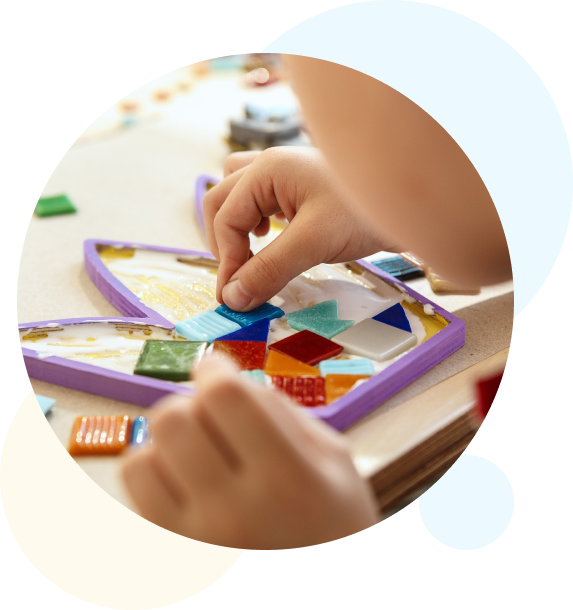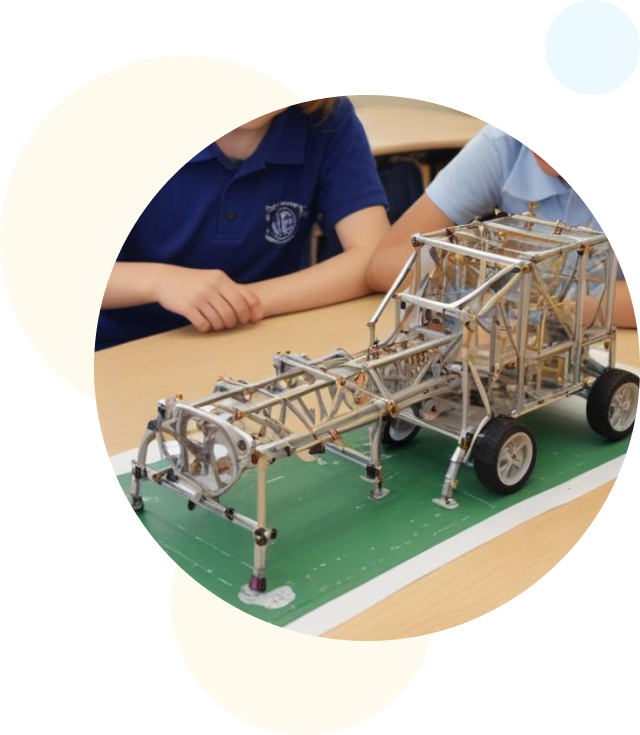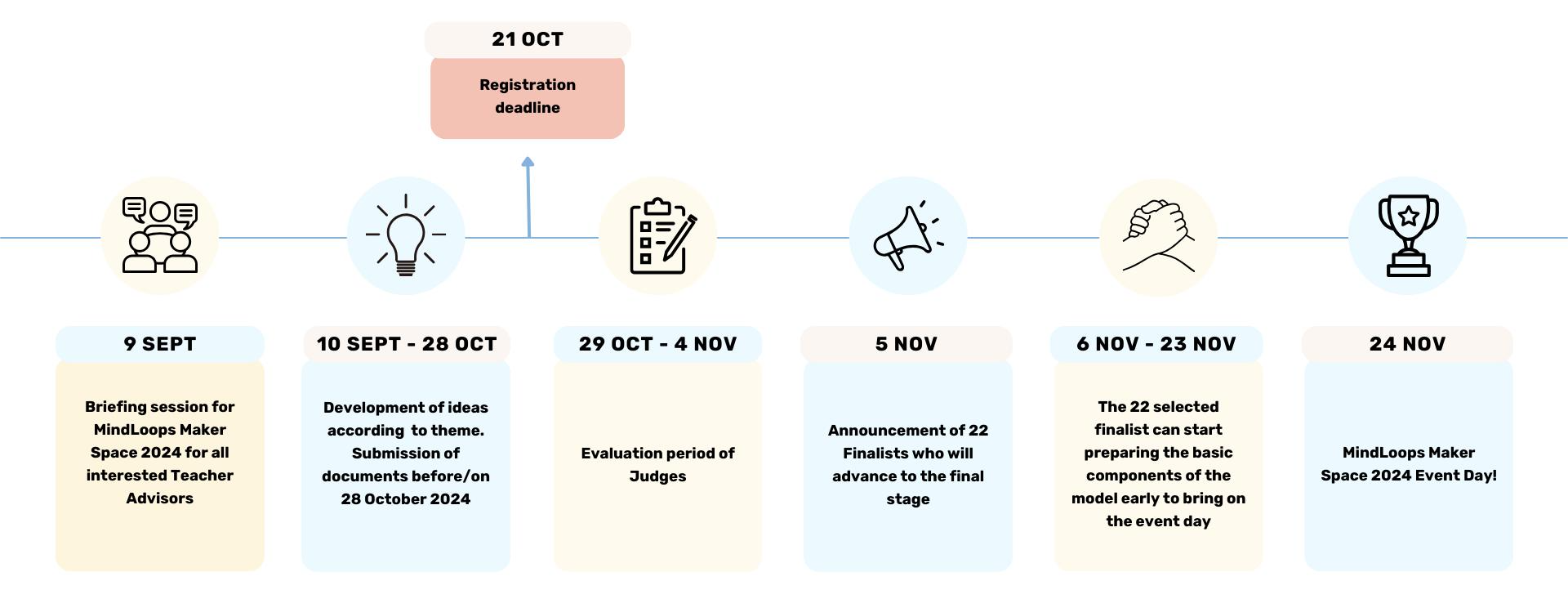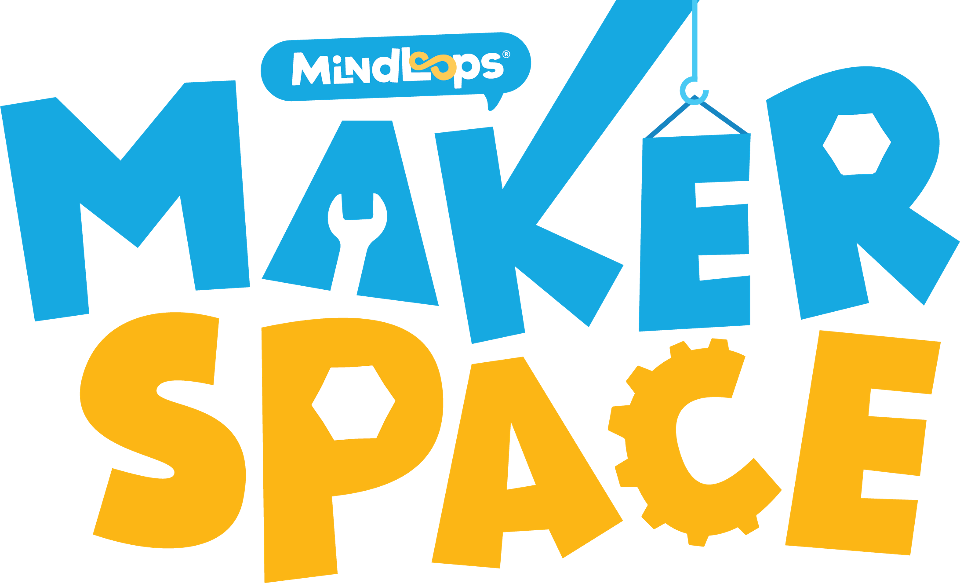MindLoops® Maker Space Programme Details
Ignite Young Minds with Innovation!
Overview
MindLoops® Maker Space is an exciting initiative by EDESS and partners, crafted for primary school children. This annual event offers a rich learning experience, focusing on STEM, TVET, Sustainable Development Goals (SDG), and entrepreneurial skills essential for the 21st century. Teams shortlisted can compete in developing innovative models.
Programme Highlights
- STEM and TVET Focus: Engage in activities centred on science, technology, engineering, and technical skills.
- Entrepreneurial Skills: Foster innovative thinking and problem-solving.
- 21st Century Skills: Develop teamwork, leadership, and digital literacy.
- SDG Integration: Promote sustainable development goals through practical projects and initiatives.
Goals
- Promote STEM, TVET, SDG and entrepreneurial skills.
- Encourage innovation, entrepreneurship, and new technologies.
- Advocate for sustainable practices.
Mission
To create a dynamic environment fostering 21st-century skills through practical STEM and TVET applications, SDG and entrepreneurial thinking.


Objectives
- Cultivate creativity, innovation, and entrepreneurial mindset.
- Enhance teamwork and communication.
- Educate on digital literacy and sustainable problem-solving.
Participant's Criteria
This state-level programme targets primary school students aged 10 to 12 across all schools in Johor, whether government, private, or international. Each team must consist of 4 members, accompanied by an advising teacher.
Model Criteria
- Innovation: Originality of the model.
- Materials: Use recycled materials.
- Functionality: Model must align with the theme.
- Safety: Ensure safe use.
- Design: Interesting and appropriate design.
Timeline

Programme Stages
Stage 1: Idea Conception
(6 Weeks Prior to Event Day)
- Registration: Sign up to show your interest in participating.
- Briefing: Attending briefing sessions by the accompanying teachers is mandatory.
- Research and Innovation: Teams are encouraged to use AI technologies (e.g., ChatGPT, CoPilot, Perplexity) to research and update their ideas.
- Model Selection: Choose suitable models, functionalities, and recycled materials.
- Submission: Teams must submit detailed model ideas using the provided Maker Space Model Planning form.
- Selection: The top 22 innovative teams will be selected to advance to the final stage.
Stage 2: Development Stage
(Event Day)
- Participants: 22 finalist teams.
- Duration: 2 hours to develop the model.
- Materials: Teams bring their own recycled materials and tools; essential tools like glue, scissors, and tapes are provided.
- Task Division: Flexible, depending on situational needs; teamwork is crucial.
- Presentation: Each team must have a representative to present the Entrepreneurial Concept based on the Business Canvas for 5 minutes during the build.
- Testing: Teams check and test models before presenting to judges and the audience.
Stage 3: Presentation
(Event Day)
- Presentation: Each team must have a representative to present their model to the judges.
- Duration: 5 minutes for each presentation (5-Minute Pitch).
- Skills: The presenter must demonstrate excellent, clear, and effective communication skills.
Model Themes
-
Eco-friendly innovations
SDG 9 & SDG 12 -
Healthy living solutions
SDG 3 -
Sustainable gardening
SDG 2 & SDG 15 -
Fashion and accessories
SDG 12 -
Wildlife and nature conversation
SDG 3 -
Energy efficiency
SDG 7 & SDG 13 -
Recycling and upcycling
SDG 12 & SDG 13 -
Water conservation
SDG 6 -
Environmental awareness
SDG 13 & SDG 15 -
Community impact projects
SDG 11 & SDG 16

 EN
EN